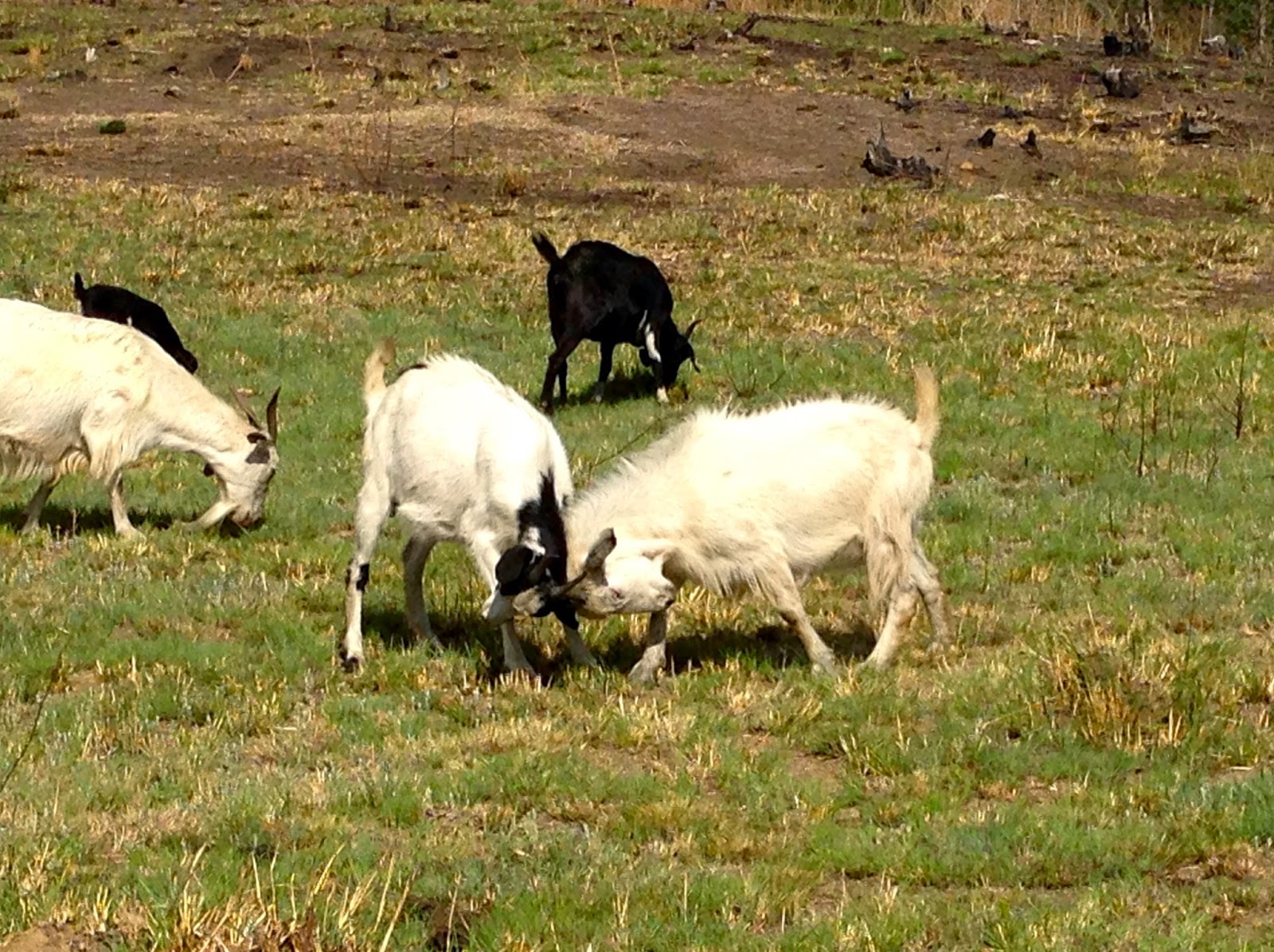--Chekov
It is hard to say who learned more in the two days I taught chess at KwaPitela Primary school. I hope I started them on the road to playing chess at least. But more on that later...
The morning after the World Youth Chess Tournament ended, we rented a small car, bought some groceries, and drove 218 kilometers to Himeville, a small town in the Drakensberg mountains. It would be my first sights outside of the city of Durban and into the country. Suddenly there were bulls and goats in the roads and small villages of rondavels which are traditional Zulu homes made of cow dung, reeds and plaster. We would live in one in the backpacker's lodge we would stay at.
 |
| On the road to Himeville through the Drakensberg Mountains |
The drive was amazing though, the views as we headed up the mountain were spectacular, and I especially got a kick out of the goats. We wanted to stop at the Nelson Capture Site Museum, a waterfall and nature reserve that were all on the way, but we missed the turnoff (we would get there on the way down, so more on that later) but we did stop at Bulwer and got to walk the indigenous Marutswa forest boardwalk to do some birdwatching and to look for the rare and endangered Cape Parrot. Unfortunately it threatened to storm and we didn't sight the parrot, but did see and hear many other birds and met a friendly old man who was walking through the forest to his home with a bag of food for his chickens. He said he walked through the forest every day and saw the Cape Parrot often. This was my first real introduction to the birds of South Africa (there weren't many on the Durban beach surprisingly) and during our travels I would get more and more interested in them and especially their calls and songs. In later blogs I will play you one of the recordings I made of a bird song I especially like.
 |
| Marutswa forest |
 |
| The Cape Parrot which we did not see |
Anyhow it started to get dark and cloudy and we were still an hour or more from Himeville, so we got back in the car and drove with very little visibility which was somewhat scary especially because we knew there was livestock in the road. Luckily we didn't crash and by the time we made it to our Himeville lodgings it cleared, and we got this beautiful view of the mountain range we would be living within.
We stayed at Sani Lodge Backpackers in a traditional rondavel made from ‘dakha’ (clay soil), poles, ‘tengus’ (tree branches) and grass thatch (no cow dung we were told because it doesn't last that well). The materials all come from the local environment and the rondavels are built by local Zulu people. Our rondavel was very comfortable and warm, even though it was cool at night (we were visiting South Africa in springtime and in Durban the temperatures averaged in the low 70s, but in Southern Drakensberg at an altitude of 5,183 feet the weather was variable). One man we met said that the Drakensberg mountains had seven seasons and he could not even name all of them! To prove that, one night when my mother went out to the car to get something, she swears she encountered a light snow though I was all snugly in the Rondavel preparing my chess lessons so did not see it. It was cold early in the mornings though and I had to layer with sweaters and vests. Russell and Simone are the proprietors of the lodge and they also organize the volunteer program at the Zulu school I taught at. Theirs is a beautiful, peaceful hostel where you can see wild cats and baboons walking the trails and where the birds seemed even more prolific than the forest we had visited. The area was formerly the terrain of Bushmen hunter-gatherers, who spent their summers in and around Himeville and after teaching chess I would hike to see Bushmen art and will show you some photos in a later post.
 |
| Our home during our stay in Himeville |
 |
| Thatched roof of our Rondavel |




No comments:
Post a Comment